I thought I had pulled a muscle – in fact this was the first sign of terminal cancer which is killing more and more people under 50, and there were NO other symptoms
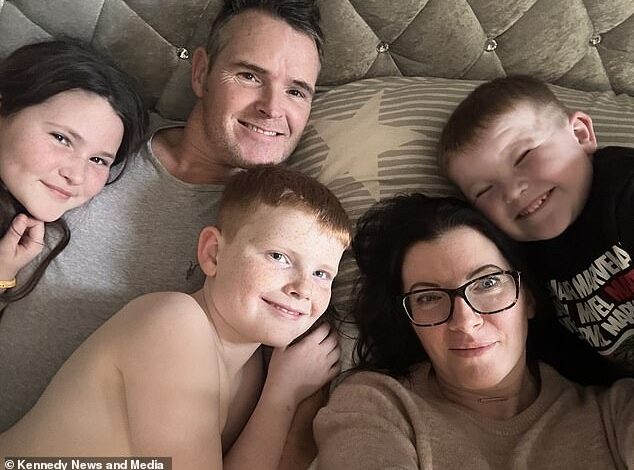
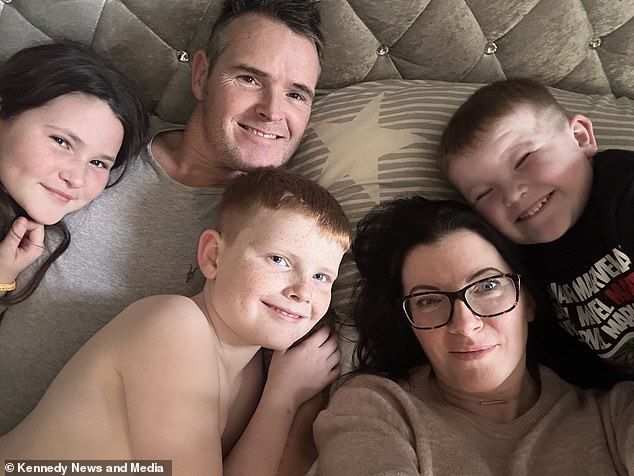
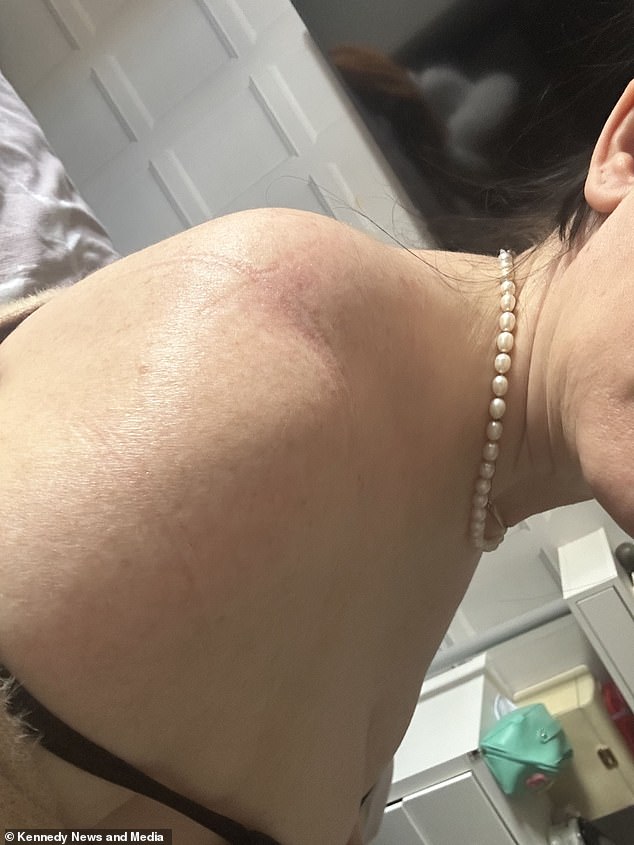
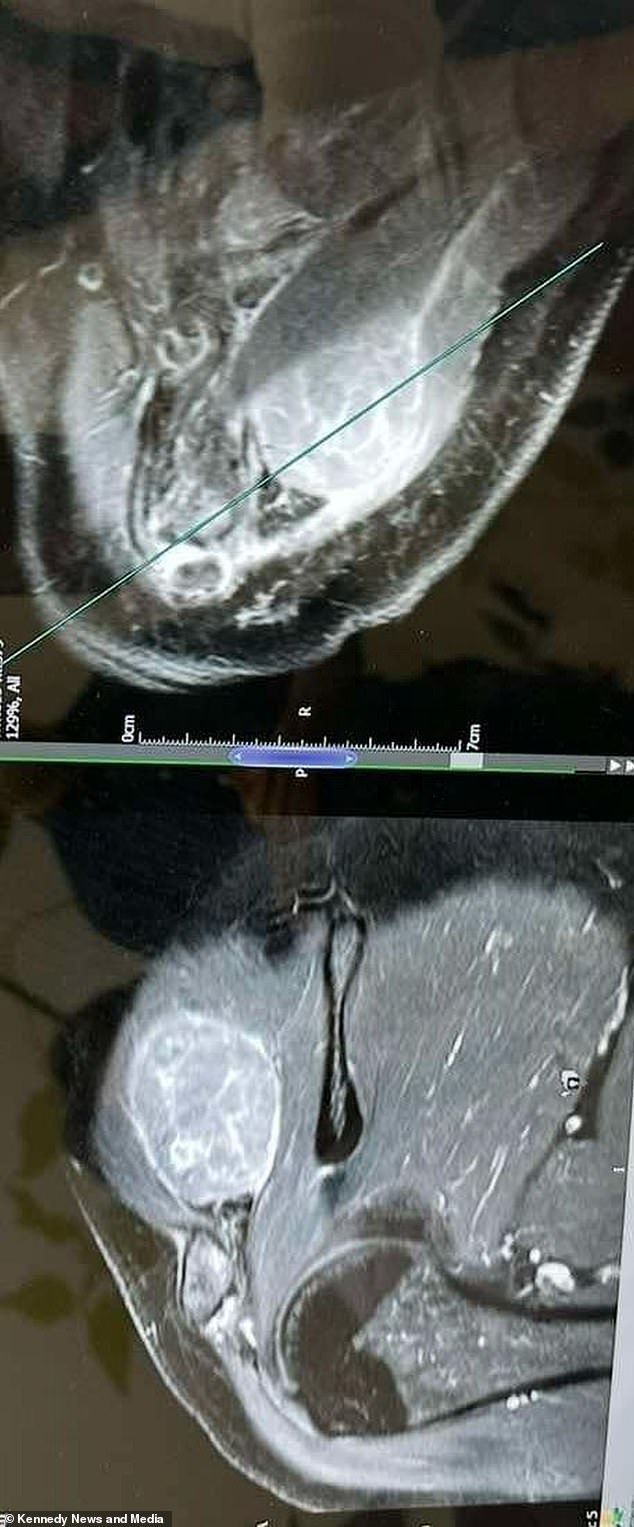
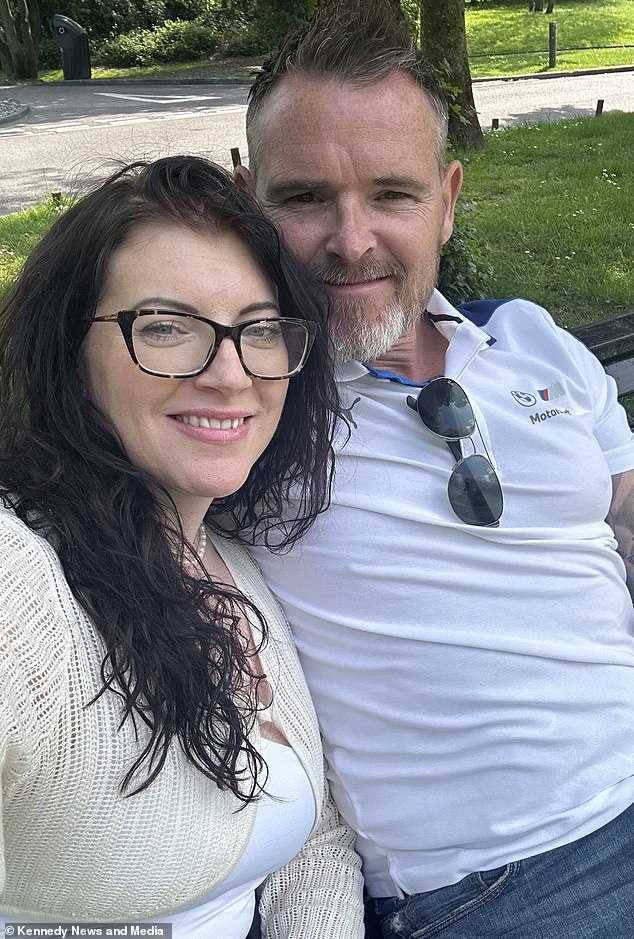
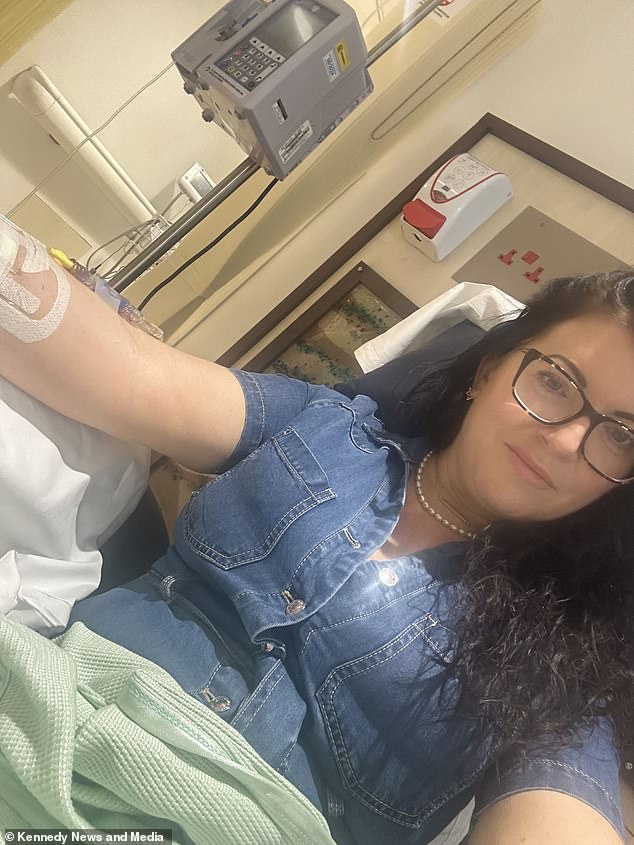
A mother-of-three has told of her devastation after what she thought was a ‘pulled muscle’ in her shoulder turned out to be stage four cancer.
The first sign that something was wrong came when Claire Turner, 43, tried to pass her daughter a croissant in the car.
The accountant, from Didcot, Oxfordshire, was in the passenger seat as her husband Mark Turner, 49, drove the family away for a weekend away in October last year.
As she turned to give the pastry to eleven-year-old Annabelle in the backseat, she felt a twinge in her right shoulder.
Doctors initially said it was a torn ligament, but Mrs Turner became concerned weeks later when she noticed a slight swelling on the top of her shoulder, the size of a £2 coin.
The growth continued to increase over the next few weeks and it became so painful that she could no longer wear a bra or purse, she says.
After multiple visits to her GP and hospital, Mrs Turner underwent a biopsy and scans in January which revealed it was stage four melanoma – a deadly form of skin cancer.
Ms Turner, who used sunbeds in her twenties, now faces an uncertain future and is urging people to avoid harmful UV rays to avoid the same fate.

Mum-of-three Claire Turner, 43, has told of her devastation after what she thought was a ‘pulled muscle’ in her shoulder turned out to be stage four cancer

Doctors initially said it was a torn ligament, but Mrs Turner became concerned weeks later when she noticed a slight swelling on the top of her shoulder, the size of a £2 coin.
There are around 17,500 new diagnoses of melanoma in Britain every year and the numbers are rising at an alarming rate.
Since the 1990s, rates have approximately doubled in women and nearly tripled in men. Today, more than 2,300 people die from the disease every year in Britain.
Melanoma starts in melanocytes, the cells that produce melanin and give the skin its color.
However, it can grow quickly and enter the bloodstream, which can lead to tumors invading other parts of the body – this is known as stage four cancer.
At this stage, treatment becomes difficult: less than half of patients with stage four melanoma survive more than five years after diagnosis.
Mrs Turner said: ‘It was a blessing that injury happened. I don’t know what I did that day, but it was clear that some movement caused the tumor to swell and move.
‘We went to the beach for a weekend away with friends to the coast. We had a breakfast package for the children.

In January, Ms Turner underwent a biopsy and scans which revealed stage four melanoma. The image above shows the scan of Mrs Turner’s shoulder, with the tumor in white
‘When we went down, they all said they were hungry. I gave the breakfast, including a croissant, banana and bottle of water, back to one of them and it felt like I pulled a muscle.
‘I thought ‘that’s painful’, but then I carried on with the day. It was quite painful to carry a bag and that night it was also quite painful to lean on it.’
The accountant visited the hospital after the trip and after an x-ray showed nothing, doctors told her it appeared to be a torn cruciate ligament.
“They gave me painkillers and told me to hold it and let it rest for a few weeks so it would settle down again, and it did,” Mrs. Turner recalled.
Weeks later, she noticed that her shoulder looked slightly swollen while she was traveling to work.
She said:I went to the doctor and… [was told] that shoulder injuries take some time to heal.’
The mother booked an appointment with the GP online and was referred to an orthopedic consultant in December.
After undergoing an MRI scan, she was referred to a cancer clinic and had to wait for a diagnosis over Christmas, ‘expecting the worst’.

Ms Turner, who used sunbeds in her twenties, now faces an uncertain future and urges people to avoid harmful UV rays to avoid the same fate
Claire said: ‘At this point it was very obvious and there was quite a bit of swelling on my shoulder. I couldn’t carry a bag or wear a bra.
‘At Christmas I went into a spiral. It was horrible and I expected the worst. It’s the lowest I’ve felt on the entire trip.”
When she finally got her diagnosis, Ms. Turner felt “breathless,” she says, adding, “It threw me off, I was just shocked.
‘Melanoma is a dodgy mole and that’s where it came from, I thought.
‘It starts with a skin lesion, you look at it and ignore it, which is what I thought was skin cancer.
“The doctor said I had a 50/50 chance of coming out the other side of this.”
In the vast majority of cases of melanoma, the ‘primary tumor’ – the place on the skin where the cancer started, often a mole – is known.
However, in about three percent of cases it is never found. These patients are diagnosed only after tumors appear around the body.

Mrs Turner was undergoing immunotherapy but had to stop in August after it caused inflammation of her pituitary gland and optic nerve
Experts believe that in these cases the primary tumor shrunk and disappeared at some point, meaning it went unnoticed.
For this reason, doctors say that a mole that is getting smaller – and not just moles that are changing and getting bigger – is a warning sign that should be checked.
Mrs Turner said: ‘There was no primary on my skin. The nurse told me, “It could be that there was something on the skin and your body healed it.”
“But the cancer cells got so deep that they traveled around for months or even years and created other tumors.”
Ms Turner was undergoing immunotherapy but had to stop in August after it caused inflammation of her pituitary gland and optic nerve.
Despite this, she is philosophical about her predicament: ‘I’m grateful that I had it investigated.
‘My nurse told me that with my diagnosis ten years ago I would have six to seven months to live. That was quite shocking.”
Although scans revealed further tumors in her liver, leg and buttock muscles and around her shoulder, these are now shrinking or disappearing.
One of the biggest risk factors for skin cancer is exposure to UV radiation.
Ms Turner is now urging others to look after their skin to prevent the same thing happening to them.
She said: ‘I have used sunbeds and got burned in the sun trying to get a tan, a tan doesn’t last. Fake tan doesn’t last long and real tan doesn’t last long, but which one is safer?’




